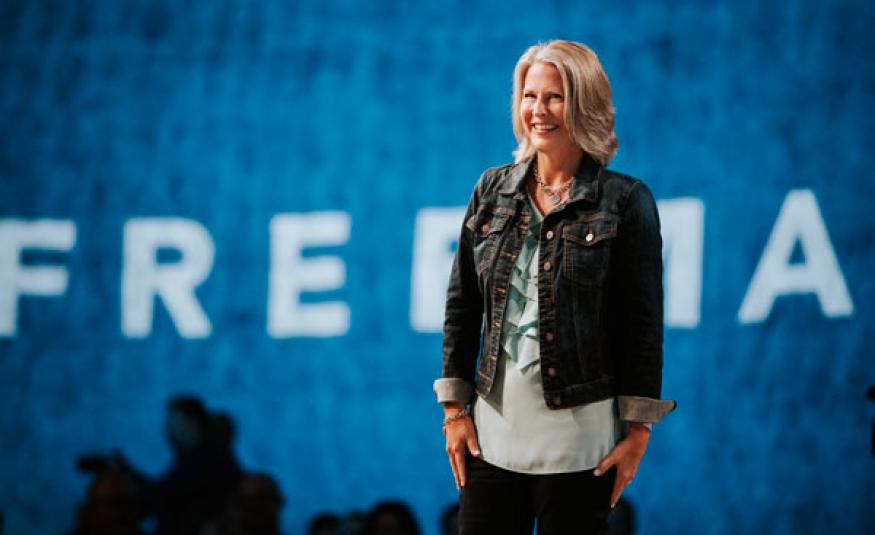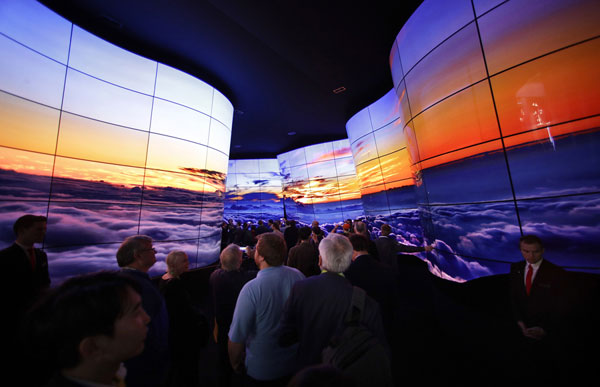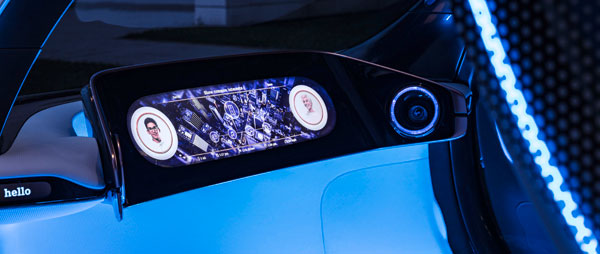Freeman’s vice chair Carrie Freeman Parsons, granddaughter to founder Buck Freeman and daughter to chairman Don Freeman, discusses her vision, as featured in Exhibition World 2018 | Issue 1.
How has 2018 started off for Freeman?
We started off January with a bang. It’s been fast and furious, with the Consumer Elctronics Show (CES) in Vegas getting things off at a fast pace. The CES went exceptionally well, and there was a unique circumstance in which the lights went out, which got a lot of press with it being an electronics show. But Gary Shapiro really understands the value of his event as it relates to the brand and its association. He’s ensured it stays relevant and focused. Bygone electronics shows have failed, but CES has stood the test of time. They’ve also pushed sustainability and we have executed plans to support that. The event got more press than any other exhibition I can think of.
What are Freeman’s core values?
Family has always been at the heart of our business after my grandfather and father have been an integral part. We became more explicit about our values 6-7 years ago. The values we talk of are integrity, empathy, and how we work with each other – we need to both perform well and care. Performance excellence is another value. We can do a lot of good work but if there’s a technical glitch, for example if a mic doesn’t work, then that matters less. Innovation is also vital.
Enthusiasm is also at our core. My grandfather put up a quote on the office wall: “Nothing great was ever achieved without enthusiasm,” Ralph Waldo Emerson. As a crabby teenager it was lost on me, but it means a lot now.
Sticking to the same values and keeping them universally applicable has been an on-going discussion as we expand. We decided our values do indeed stay true globally. Translation of some of them, for example, empathy, can be different in some cultures, but the definition and relevance is the same.
Speaking of empathy, how can exhibition companies better appeal to changing consumer profiles?
One of the ways the value of ‘empathy’ is put into practice is by designing experiences for the attendee. We were previously more organiser and exhibitor focused, but now we’ve realised we need to be partner in attendee experience. We must help our stakeholders connect with consumers and make sure no one is aggravated. We made investments in digital recently, and on overall design of our exhibition experience. We considered exhibitors and show organisers first, and how can we reduce their stress, but we are chipping away more at what we can do on the exhibitor side, trying to systematise what we do, and have consistent experience.
How can venues adapt to changing organiser and logistics requirements?
What is missed often is looking around and thinking of the user experience. I was at a show a week ago, and people are on the floor eating lunch, and there were not enough places to eat, plus the traffic levels were terrible. We had multiple meetings around labour and security and logistics, but not as many on the incoming person experience. This is a collaborative partnership with owners, venues and everyone involved. We must consider taking more time and effort to make an event come to life. We don’t want to see people plugging their phone into a random wall.
What have been the key sustainability efforts at Freeman?
A good deal of the work for making an event sustainable is thinking of the waste at the end of the show and where the materials go. VP of sustainability Jeff Chase considers this journey and what can go to non-profits. It’s about thinking months in advance, planning for partner activity and working with exhibitors. We’ve not had the report back from CES, yet, but news clips showed a positive effort, and particularly great efforts to avoid landfill.
How has digital changed exhibitions?
Digital has been instrumental in letting people know who is coming and who is providing the content and connecting people with most relevant companies. The pipe dream is effectively using all the digital technology on offer and harnessing the data. We really are now able to personalise an event to the degree they want to opt in. It’s a strategy to ensure the experience is as meaningful as possible.
Data and trends can transform how we think about the layout and registration of an event and the investments in physical areas based on behaviour and attitudes, but it’s hard to not get caught up trying to ‘boil the ocean’. You must start with what matters, and have clarity about what you need to achieve and that’s the discipline. Wheels are now turning faster and we are better prepared, and our clients are better prepared
What are your future projections for technology at exhibitions?
I have to imagine Augmented Reality will be even more fundamental to every industry. It will effect, for example, physicians using the technology in important situations. We need to consider what that means to companies that work with physicians. The technology is vital to the exhibition and we need to look at how that will change our clients’ industries.








